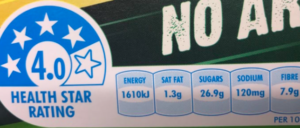Last night I watched the Four Corners program Tipping the Scales on the ABC. (did you miss it? watch it here https://www.abc.net.au/news/2018-05-01/tipping-the-scales/9712342). It addressed the impact that added sugar is having on the health of Australians and the influence the sugar industry has on our policymakers.
Here are a few key points from the program that are worth paying attention to:
- In Australia 27% of children and 63% of adults are obese or overweight. For adults, that figure is projected to be 80% by 2025.
- Type 2 diabetes is a lifestyle disease that is rapidly on the increase. In the past it was a disease associated with old age but now children as young as 5 years of age are developing type 2 diabetes. One of the complications of type 2 diabetes is ulceration of the limbs which can lead to amputation.
- Type 2 diabetes is preventable.
- In Australia, there is currently no National Obesity Strategy even though it is the leading public health issue in Australia.
- The World Health Organisation guidelines recommend that added (free) sugars account for less than 10% of your daily energy intake and encourage a further reduction to less than 5% for optimal health. For an adult 5% equates roughly to 9 teaspoons per day for men, 6 teaspoons for women and 3-6 teaspoons for children depending on age. You can read about it here http://www.who.int/nutrition/publications/guidelines/sugars_intake/en/
- 1 x 375mL can of soft drink can have 9 teaspoons of added sugar.
- Our current Health Star Rating, found on the front panel of many foods, does not differentiate between added sugar and natural sugar. Hence a breakfast cereal which contains 26.9% of added sugar can have a 4-star health rating. (any food above 22% is considered high in sugar).

- Natural sugars such as those found in fruit come packaged with fibre, vitamins and minerals. Added sugars do not.
- It appears that those with a vested interest in the sugar industry have significant political sway.
- A sugar tax is not the only answer but could be a step in the right direction. The added bonus is the money could be used for education and to support hospitals as they deal with the fall out of the obesity epidemic.
So all in all an interesting program which raised some real concerns not just for Australia but for much of Western society. We, like Dr Robert Lustig, need to question how did we ‘get this fat this fast?’ and while added sugars are not the only culpurit they are certainly one of the things we can point our collective chubby finger at.




